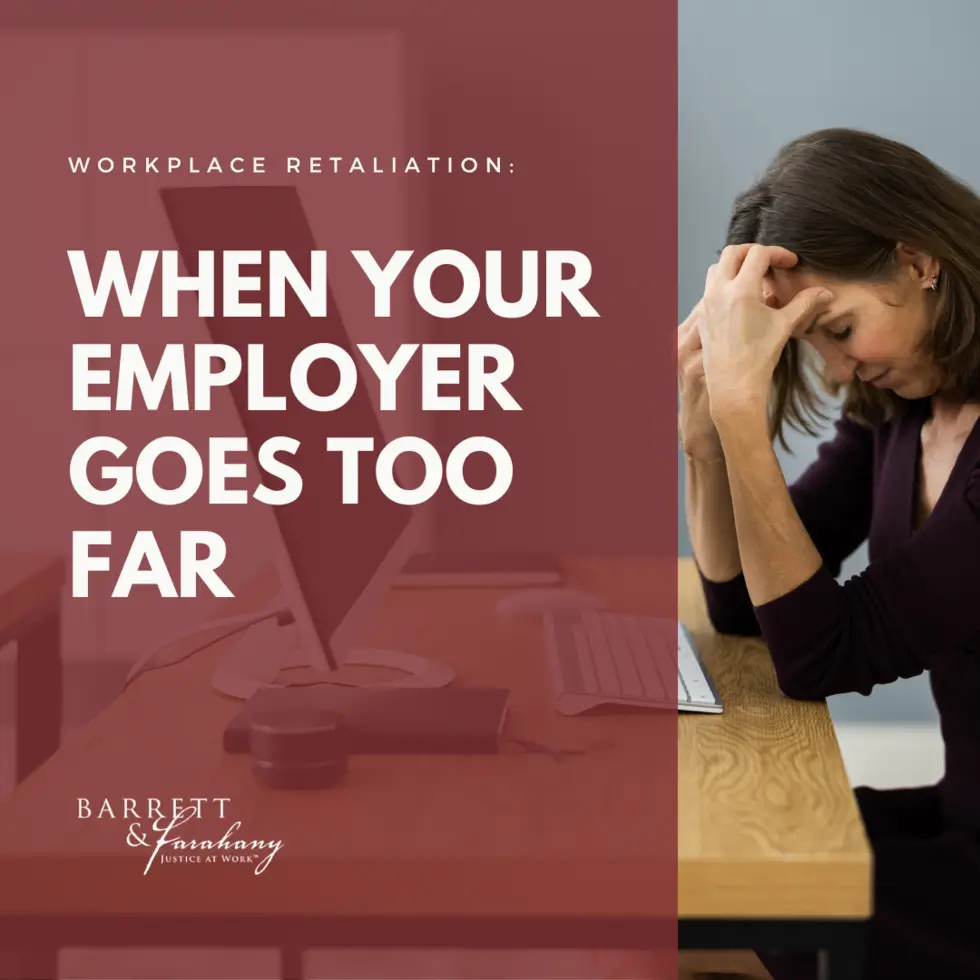You might have been a victim of workplace retaliation without even knowing what workplace retaliation is. Therefore, we first need to understand what workplace retaliation is. Workplace retaliation is a widely encompassing term and can consist of many different things. Perhaps the best way to describe workplace retaliation would be any negative action taken by an employer against an employee for engaging in legally protected activity. According to the Department of Labor, workplace retaliation occurs “when an employer (through a manager, supervisor, administrator or directly) fires an employee or takes any other type of adverse action against an employee for engaging in protected activity”.
Perhaps one of the most common examples of workplace retaliation is when an employee complains to his/her manager about facing discrimination in the workplace and is then terminated, or demoted, from employment as a result. However, retaliation can be more subtle than being fired or demoted, as in some situations it may not be clear that an employer has engaged in retaliatory behavior. For those types of instances the U.S. Supreme Court has stated that the entirety of the circumstances of the situation must be considered. For instance, a change in working hours may not on its face seem like retaliatory behavior, but it could be for an employee who has young children and therefore is not at liberty to have a flexible schedule. Oftentimes, in such instances, it can be helpful to speak to the employer as there might be legitimate reasoning behind the action taken, as opposed to any retaliatory reason.
Workplace Retaliation is prohibited under Georgia Law
Workplace retaliation is prohibited under Federal law, which of course applies to all states including the state of Georgia. The pertinent statute is Title VII of the Civil Rights Act of 1964. If you feel like you have been a victim of workplace retaliation then you will need to make a complaint with the Equal Employment Opportunity Commission (EEOC). The EEOC has the authority to investigate such complaints, and as a matter of fact filing a complaint with the EEOC is a prerequisite to filing a lawsuit in Court. The EEOC will then investigate the complaint and depending on their investigation you will be given a Notice of Right to Sue. Upon the receipt of this Notice you will have 90 days to file a lawsuit in Court.
The next question is therefore how you can be successful in proving retaliation. In effect you will need to prove that there is a connection between the behavior that kickstarted the retaliation and the retaliation itself. This will, again, depend on a case by case basis. However, it is best to have any documentation on the alleged retaliatory behavior. It would also be helpful to keep track of your job performances, evaluations etc prior to the retaliatory behavior occurring. Let’s say that your employer is claiming to demote you based on poor performance, but if you have prior job evaluations showing that you have been an excellent employee then this might go a long way towards proving the validity of your retaliation claim.
Contact experienced retaliation attorneys today
If you believe you might have been the victim of workplace retaliation then you would be best advised to speak to experienced workplace retaliation attorneys today. Our team here at the law offices of Barrett & Farahany is experienced in all aspects of employment law, especially claims pertaining to workplace retaliation in Georgia. We will work with you to develop the best legal strategy for your case, so the best outcome can be obtained. Call us today for a free consultation


